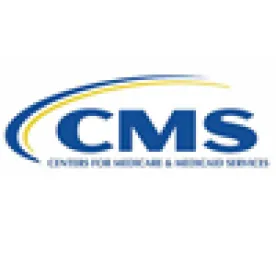Providers and suppliers who have been assessed overpayments for Medicare services are entitled, by statute, to a stay of recoupment while the provider or supplier’s appeal is pending – but only at the first two levels of administrative appeal. If both appeals are unfavorable to the provider or supplier, the next step is an appeal to the Office of Medicare Hearings and Appeals, where the matter is heard by an Administrative Law Judge (ALJ). During the now lengthy waiting time for the ALJ hearing, Medicare will recoup the overpayment by withholding current payments until the overpayment and interest are fully recovered. As might be imagined, this elimination of Medicare cash flow results in extreme financial hardship for the provider or supplier before it can have its appeal heard.
A Preliminary Injunction Issued by the Fifth Circuit Blocking Recoupment of Overpayments
Citing an “extreme backlog” of overpayment cases on appeal to ALJs, the United States District Court Northern District of Texas Dallas Division (Fifth Circuit) recently issued a preliminary injunction blocking the Centers for Medicare and Medicaid Services (CMS) from recouping $7.5 million in alleged Medicare overpayments from Family Rehabilitation, Inc. (Family Rehab), a Medicare-certified Texas home health agency. Family Rehab convinced the Court that it was likely to succeed on the merits of its claim that the government’s failure to provide an ALJ hearing within the 90-day statutorily prescribed timeframe denied Family Rehab of its procedural due process right. The Court’s decision could be a win for health care providers that are trapped in the estimated 3 to 5 year ALJ backlog, but it remains to be seen how, or if, the government will undertake widespread reforms in light of this decision.
The case (Civil Action No. 3:17-CV-3008-K) arose out of Family Rehab’s administrative appeal of a post-payment review conducted by a Zone Program Integrity Contractor (ZPIC), a particular type of third-party contractor that performs post-payment reviews of Medicare claim payment determinations. The ZPIC reviewed 43 Medicare claims submitted by Family Rehab and found that Family Rehab had received approximately $124 thousand in overpayment on those claims. According to the Court’s opinion, the ZPIC then used an allegedly unproven extrapolation method based on this limited sampling to find that CMS had overpaid Family Rehab nearly $8 million. It is this amount that CMS was recouping.
Why CMS is Able to Recoup the Alleged Overpayment
A health care provider has the option to appeal post-payment Medicare claim denials through a four-level administrative appeals process before seeking judicial review. As noted above, during the first two levels of appeal, before the Medicare Administrative Contractor and Qualified Independent Contractor, respectively, health care providers can avoid recoupment by requesting appeals within specified time frames. However, the statute does not provide a way to avoid recoupment while an appeal is pending before an ALJ or Medicare Appeals Council (the Appeals Council) within the Health and Human Services Departmental Appeals Board (the third and fourth levels of appeal, respectively) and, hence, CMS has the discretionary authority to recoup the alleged overpayment before a final determination is rendered.
By law, an ALJ hearing and decision is required within 90 days of a party’s request for appeal, a deadline that is rarely, if ever, met. The statute permits a party to escalate its appeal to the Appeals Council if an ALJ has not rendered a decision in 90 days, but the Appeals Council would only review the record established by the QIC appeal rather than conducting a new evidentiary review (as would be done by the ALJ), which can be detrimental to the presentation of the appeal.
The Impact of CMS Recoupment on Health Care Organizations
Family Rehab had proceeded through the first two levels of appeal of its ZPIC audit, and, shortly after timely filing its appeal with the ALJ, CMS began recouping the alleged $7.5 million in overpayments by withholding Medicare reimbursements to Family Rehab. Prior to the recoupment, Family Rehab relied on Medicare reimbursements for the vast majority of its revenues. As a result of the recoupment, Family Rehab was forced to layoff nearly 90% of its staff and terminate health care services for all but a handful of its patients. Family Rehab argued that it would be forced to shutter its doors immediately if the recoupment did not stop, causing further employees to lose their jobs and patients to lose their home healthcare provider. Citing these and other facts, the Court concluded that forcing Family Rehab to wait 3 to 5 years for a hearing while overpayments are recovered by recoupment creates a high risk of erroneous deprivation of Family Rehab’s constitutionally-protected property interest and substantial threat of injury to Family Rehab. The court further concluded that the alternative statutory option of escalating the appeal to the Appeals Council would not provide sufficient procedural due process.
Will This Case Provide Precedent for CMS Recoupment Efforts?
Though it is too soon to tell whether this case will spur the government to devote additional resources to the ALJ appeal process or deter CMS from pursuing recoupment during pendency of ALJ appeals, it could provide precedent for similarly situated health care providers to block such recoupment efforts, thereby enabling them to continue to operate as a going concern as they dispute post-payment review determinations. In any event, we will continue to monitor case law and CMS policy for developments in this area.





 />i
/>i

